The program does not stress one particular genre or style, but allows students to pursue their own interests which have included: narrative, experimental, animation, and documentary.
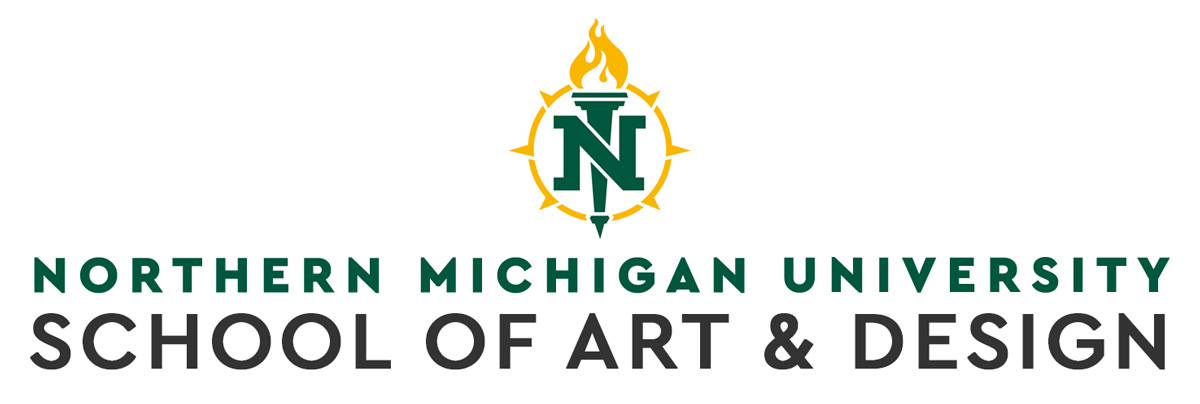

DIGITAL CINEMA



The Digital Cinema major at NMU
The School of Art and Design's B.F.A. in Digital Cinema offers you the opportunity to take up to 24 credit hours of digital cinema courses. The B.A. and B.S. have a possible 16 hours in digital cinema with the option of a minor.
Each course contains several levels of the digital cinema experience ranging from history to production. The major emphasis in the upper level courses is on the individual production of digital cinema with each student expected to demonstrate his/her proficiency in the many skills involved as opposed to learning only one aspect of production, such as editing, cinemaphotography, or even animation. The program does not stress one particular genre or style, but allows students to pursue their own interests which have ranged from animation to the documentary.
All projects within the studio are produced in digital video with facilities and equipment that include the following: high definition and 4K digital video cameras, seven nonlinear multiple processor Mac Pro workstations and 18 editing stations with Final Cut Pro, fluid head tripods and lighting and sound equipment. Studios are available for screenings, animation and sound production, and are open for student use with supervision over 80 hours a week. In addition, students are using their MacBook Pro to edit video or prepare components to composite video in the lab.
Course expenditures vary from semester to semester depending upon the length and complexity of a project a student wishes to investigate. Usually the minimum cost expected for supplies and textbooks averages from $100-150 per semester.
Recent graduates are currently employed in many facets of digital cinema making, including commercial animation, feature film and television production, Web site developers (digital cinema majors have skills from required graphic communication and computer art classes), medical audio-visual production, digital cinema distribution, education institutions and self-employed studio artists.
The Digital Cinema Majors Utilize Multiple Video Formats to Explore Many Types of Communication
Click to Learn MoreDigital Cinema Studio
Digital Cinema Students utilize the shared Art & Design Computer Studio. The studio has four labs, one designed for laptop use, and the other three are equipped with Apple MacPro computers, 23" flat screen displays, Wacom drawing tablets, and scanners. Software includes Adobe Photoshop, Adobe Premiere, Adobe After Effects, and Apple Final Cut Pro, and many others. The facility provides digital video cameras, tripods, lighting equipment, and microphones for overnight checkout. Network storage is available for moving projects from one workstation to another and as temporary backup storage. Digital Cinema students also have access to the greenscreen lighting studio, outfitted with a Knioflow light system and upperclassman access to the Red Scarlet camera. The studio is open approximately 80 hours outside of class times for student use. In addition, the Digital Cinema program utilizes a state of the art theatre style classrom for both lecture, screenings, and critique of student work.

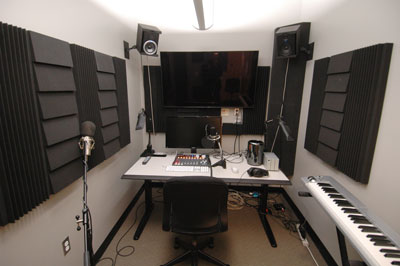


The Digital Cinema Studio is Equipped with a Wide Range of Software and High End Workstations
Click to Learn MoreDigital Cinema Faculty
click to open/close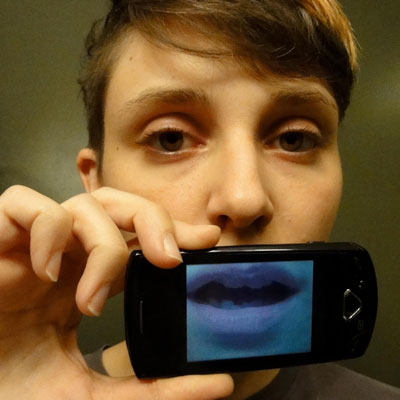
Gabrielle McNally
Associate Professor
BA Luther College
MFA University of Iowa
A practicing artist, Gabrielle McNally works in experimental autobiographical and essayistic nonfiction exploring the notions of documentation, family history, genealogy, inherited memory, place, fragmentation, ritual, and performance. Gabrielle executes all aspects of her works including the conception, cinematography, editing, sound design, and musical composition. Gabrielle graduated with an MFA in Film and Video Production in 2014 from University of Iowa. In her time at Iowa, she also completed certification in Gender, Women’s, and Sexuality Studies. Gabrielle collaborated on feature films in Iowa before attending graduate school. She received her B.A. in with honors in art from Luther College in Decorah, Iowa in 2009 focusing her work on video, performance, and installation. She also studied vocal music performance, theatre, and dance, participating extensively in all three. She continues to include these techniques in her video work. Her personal work has screened internationally at several film festivals and galleries.
WEBSITE
gabriellemcnally.com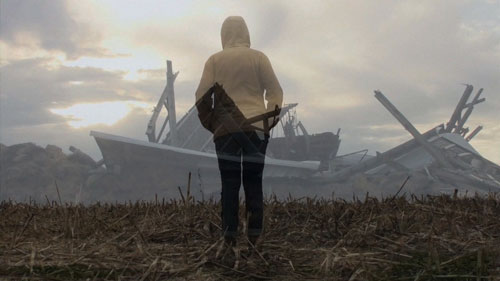
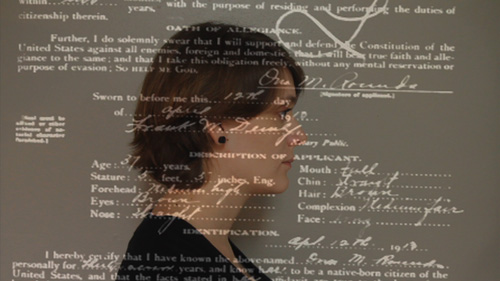
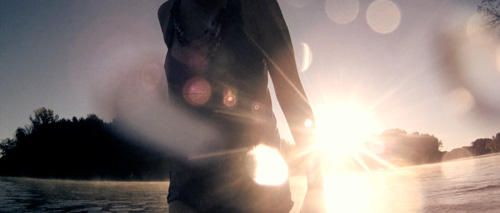
Digital Cinema Courses
click to open/closeAD 112 Digital Cinema: Foundations
Offered: Fall, Winter
4 credit hours
The foundations of digital video production; how to shoot and edit short-form cinematic works; survey of fiction, nonfiction, and experimental video production.
AD 212 Digital Cinema: Image Design
Offered: Winter
4 credit hours
Prerequisites: AD 112 or instructors permission
Continued development of digital video production skills and knowledge emphasizing fiction video production; lighting strategies, camera work, composition, and post-production.
AD 312A Digital Cinema: Nonfiction Forms
Offered: Fall, odd numbered years
4 credit hours
Prerequisites: AD 212 or instructors permission
Continued development of digital video and audio production skills and knowledge emphasizing nonfiction video production.
AD 312B Digital Cinema: Alternative Forms
Offered: Fall, even numbered years
4 credit hours
Prerequisites: AD 212 or instructors permission
Continued development of digital video and audio production skills and knowledge emphasizing experimental or innovative time-based media production.
AD 412A Digital Cinema: Production
Offered: Winter, odd numbered years
4 credit hours
Prerequisites: AD 303 or concurrent enrollment, AD 312A or AD 312B, or instructor permission.
Continued development of digital video and audio production skills and knowledge emphasizing development, production, and realization of a group practicum project; professional portfolio and statement development.
AD 412B Digital Cinema: Editing
Offered: Winter, even numbered years
4 credit hours
Prerequisites: AD 303 or concurrent enrollment, AD 312A or AD 312B, or instructor permission.
Continued development of digital video and audio production and post-production skills and knowledge emphasizing editing techniques; editing for impact, mood story; professional portfolio and statement development.
Digital Cinema FAQ
click to open/closeWhat is the difference between a Bachelor of Fine Arts in Digital Cinema and a Bachelor of Arts or Bachelor of Science?
The BFA is our professional studio degree, as it has more credits in the Digital Cinema concentration and more specific requirements in other studios, such as Graphic Design and Computer Art. The BFA also has more art history requirements and does not allow a minor. The BA and BS degrees provide students with the option to pursue a minor such as a major in Digital Cinema and a minor in Music (20 credit hours). The BA also has a language requirement.
Does the school require a portfolio review before you are accepted into our programs?
If you are accepted into the university, you are able to pursue a degree within the school. Although there is no required portfolio review to enter the program, Art and Design majors must participate and complete a faculty review of their portfolios (Individual Art Review AD 303). This review occurs after students have completed the required prerequisites in foundation courses and at least three Digital Cinema courses.
Are there scholarships for incoming Art and Design majors at the Freshman level?
The school offers the High School Freshman Scholarship (four $1000 awards) that is available each year with applications due in April.
See the web for details
Scholarship Information
What equipment is required for Digital Cinema majors??
Students do not need to have access to their own personal cameras or filmmaking equipment to complete their Digital Cinema coursework. All Art and Design majors are provided with an Apple MacBook and the Adobe Suite of software that will allow students to edit videos on their laptops. Digital Cinema students also have access to high-specification digital cameras, lighting and sound equipment, camera rigging and accessories, and high-end computer workstations that offer the latest digital applications to facilitate sophisticated post-production, editing, and color processing. A state-of-the-art lighting studio with a green screen stage and additional studios for screenings, animation, and sound production are open for individual student use with supervision outside of class time.
What are the prospects for employment with a degree in Digital Cinema?
Although Digital Cinema is a very competitive field, the employment outlook is very optimistic. According to the U.S. Bureau of Labor Statistics the number of jobs in the U.S. motion picture and video industries increased by over 100,000 jobs from 1994 to 2004. The bureau estimates that the number will grow by 31 percent in the next eight years. According to the Chicago Tribune, “that is roughly double the 16 percent growth projected by the bureau for other U.S. industries in the same time....these are jobs primarily with the major U.S. studios and smaller independent motion picture companies; the statistics do not include jobs with companies that make documentary and industrial films and videos, and those that create visual material for computer games, cell phones and other new media”. Requirements for the BFA degree in Digital Cinema include Graphic Communication, Photography and 12 credit hours in Computer Art. These requirements expand the professional skills and knowledge of Digital Cinema graduates, who are currently employed in a range of occupations that include television producers, independent filmmakers and Internet animators.
What emphasis will I find in the Digital Cinema program?
The Digital Cinema program presents a curriculum that exposes students to a broad experience that includes pre-production (storyboarding, scriptwriting, art direction), production (directing, cinematography, sound design, special effects), and post-production (editing, sound mixing, color grading, visual effects). Although technical competency is required, the emphasis of all projects is to develop understandable concepts with the original intention realized in the final video production.
Currently, AD112 Digital Cinema: Foundations develops the basic skills required to successfully work with video across multiple formats. AD212 Digital Cinema: Image Design delves deeper into both cinematography and post-production visual effects. In the 300-level courses (AD312A and AD312B) students focus on two distinct modes of making: nonfiction and experimental forms. At the 400-level students take 412A: Production and 412B: Editing, working both collaboratively and individually on portfolio projects and professional development materials.
Do most of your majors find employment?
The majority of students who continue to pursue work in Digital Cinema find employment in the industry. Graduates are currently working throughout the United States from Los Angeles to New York City. Internship opportunities in Marquette continue to expand and the completion of an internship before graduation does increase students’ chances of employment upon graduation. Students are also encouraged to join the 4Reels Digital Cinema student organization to further their network outside of the classroom. Advanced Digital Cinema courses include a component of resume and portfolio development so students are prepared before they graduate to begin a job search. A number of our graduates also choose to pursue graduate studies.
May I enroll in other Art and Design classes?
Yes - there are Art and Design elective credits designed into the curriculum. You should consult with your advisor or faculty mentor for specific details. All 100-level Art and Design studio classes have no prerequisites and can be taken by anyone.




















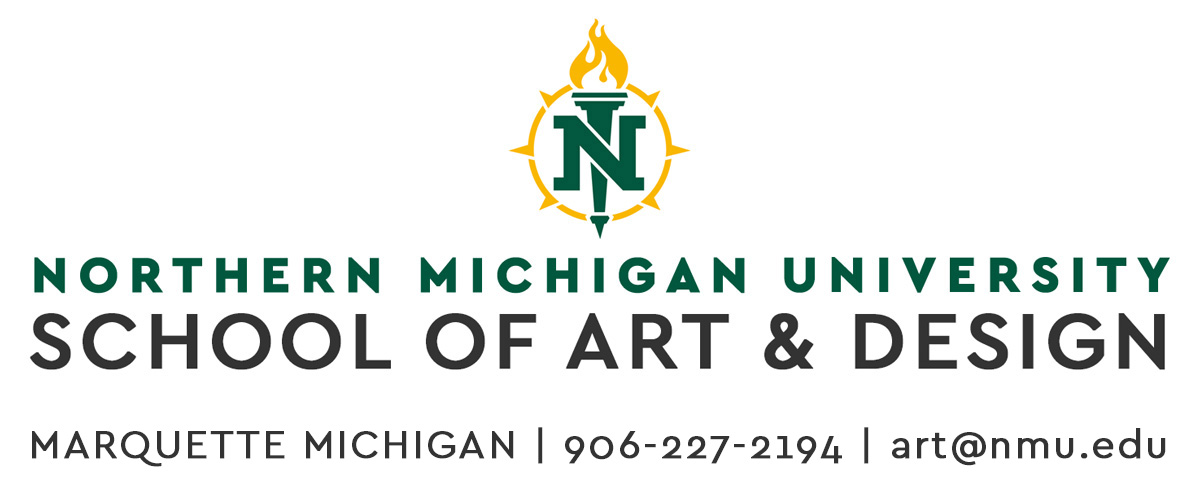
 NMU is an
NMU is an 



